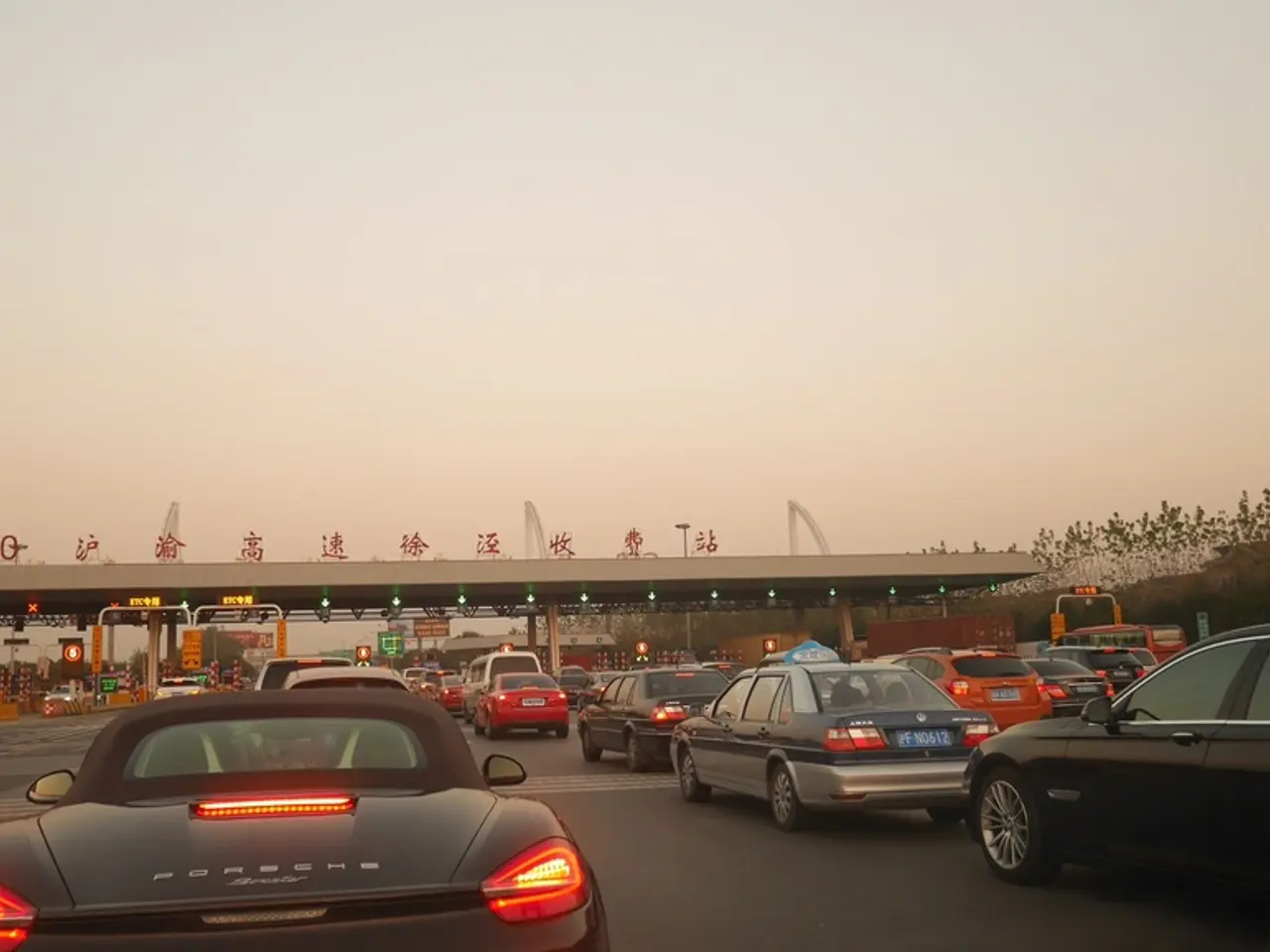USDOT rescinds approval for New York's congestion pricing, prompting city to challenge decision
New York City's congestion pricing scheme, launched on January 5, has shown promising results in its first few weeks. However, on a recent turn of events, the US Department of Transportation (USDOT) has rescinded its approval of the programme, citing violations of the 'Value Pricing Pilot Program'.
The USDOT argued that the programme provides no toll-free route for drivers, unfairly burdening working-class commuters and small businesses. The Metropolitan Transportation Authority (MTA) and Governor Kathy Hochul accused the federal government of political interference.
Despite the setback, the MTA had anticipated the move and had a 50-page lawsuit ready to file within minutes of receiving the termination letter. Legal experts suggest that the lawsuit could take months or years to resolve, leaving the future of New York's congestion pricing scheme uncertain.
In the initial stages, the congestion pricing scheme demonstrated positive effects. Traffic reduced by 9%, with 1.2 million fewer vehicles entering the Central Business District (CBD). Bus speeds improved significantly, and cross-town traffic speeds saw a notable increase. Congestion at major bottlenecks like the Holland Tunnel, Canal Street, and 34th Street eased, resulting in fewer pedestrian injuries and a decrease in the number of crashes by half.
The positive changes extended to other aspects of city life. Foot traffic in the CBD increased, Broadway revenues rose by 25% and audience attendance by 20%. Commercial office leasing in January was 61% higher than the previous year. Many drivers benefited from reduced congestion, improved travel speeds, and shorter commutes. Even yellow cab drivers saw an increase in trips and tips by around 10%.
The case could have significant implications for urban transportation policy, state-federal relations, and toll-backed infrastructure projects nationwide. Many toll-backed bonds in US states like Texas and Florida depend on federal approvals, and a precedent for revoking approvals retroactively could make future toll-backed revenue bonds more expensive to issue.
The Road User Charging Conference series, a global event focusing on tolling, pricing, and road usage charging, is set to take place in Brussels (March 2025), Abu Dhabi (May 2025), Miami (September 2025), and Singapore (October 2025). These events could provide a platform for discussions on the future of congestion pricing and its role in funding transit systems.
Public sentiment towards the congestion pricing program has shifted in its favour, with many recognising the benefits it brings to the city's infrastructure and traffic flow. As the legal battle unfolds, the future of New York's congestion pricing scheme remains a topic of great interest and debate.
The authority that called for the immediate cessation of the feeder fees in New York City is not identified in the provided search results. The US Department of Transportation (USDOT) has confirmed that it will work with local authorities on an orderly termination of the project. The MTA has confirmed that the congestion pricing infrastructure remains operational.
In the meantime, the city continues to reap the benefits of the congestion pricing scheme, with improved public transportation, reduced traffic congestion, and a boost to the city's economy. The outcome of the legal battle promises to shape the future of urban transportation in New York and beyond.
Read also:
- Shaping India's Economic Progression: Readying the Financial System for Tomorrow
- Two farmers in Zambia take legal action against two firms with Chinese connections, alleging an ecological disaster caused by their operations.
- Deepening EU-India relations despite apprehensions regarding Moscow connections
- Ongoing Transition Towards Cleanliness







